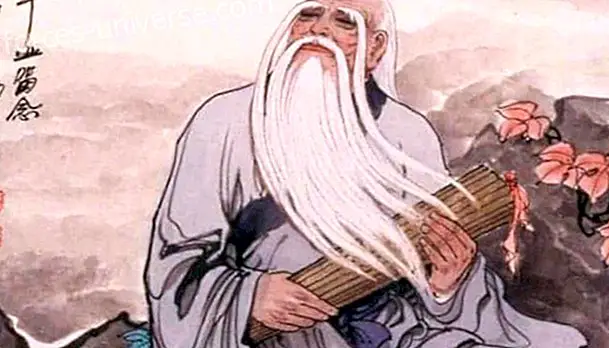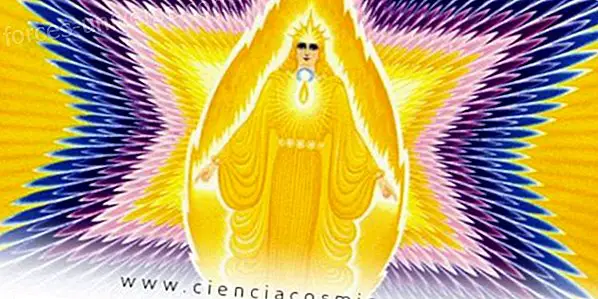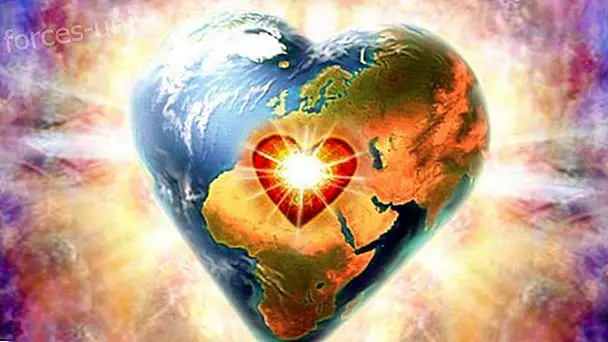
This channel was presented to a live audience on February 6, 2005 in
Dear friends,
I am delighted to be among you again and to communicate with you in this way. I must tell you that this means a lot to me too. I appreciate these encounters, because in this way I can get closer to you than when I am within my own plane of reality.
Even so, I always live within their hearts and wait for those moments in their time when they are open and susceptible to my energy. My energy, the Christic energy that is being reborn in these times, is not just my energy. It is not simply the energy of a man who lived on earth in an era: it is a collective energy field of which you are part of a deeper way of what you understand.
You all made a promise once, you all expressed your intention to take this energy further into the earthly reality, to anchor it within the earth. For many lives, many centuries, you have worked on this mission. You are all in the process of giving birth to the Christ seed within you, and I am helping you. I was a precursor, however the sowing of the Christ energy was a collective effort. Even my arrival on earth was possible only because of the energy field that was present here, woven by you. We work together, we are a unit.
Therefore, I am accessible to all of you. I am not available exclusively to any person. I am at the service of all of you.
Today I want to talk about a topic that touches them deeply and frequently in the daily lives of their lives. It's about dealing with emotions.
Last time I talked about the masculine and feminine energies that run through their energy field and their fields. I have stressed the importance of healing the three lower chakras, as a part of becoming whole and complete within yourself. I thought it was important to emphasize this, since many of you who yearn for the spiritual tend to withdraw, both in thought and in feeling, to the upper chakras.
The heart, the third eye and the crown chakra are attractive to you, because these energy centers lead you to be in contact with the higher realms that are so natural to you. But the real internal rupture must now occur at the lower level, in the area of the lower farms, close to the earth.
The area of emotions is a vital area in the process of development towards freedom and totality. You are spiritual beings. You came from a plane of reality where the density and lack of direction of earthly reality was unknown to you. Getting along with this has been difficult.
Throughout many lives, you have tried to express your cosmic energy here on earth. And in this expression, in the channeling of their energy to the earth, many deep traumas have developed. The emotional body, which you all possess, is full of wounds and traumas. I want to talk about this today.
Everyone who travels on the path of inner growth knows the importance of emotions: that you should not suppress them, that somehow you have to come to terms with them, that you must finally release them, but how it works All this is not always very clear.
First I want to make a distinction between emotions and feelings.
I am not interested here in the specific terms or classifications, and you can call it by different names, but I want to make a distinction between emotions, in the sense of energies that are essentially expressions of misunderstanding, and feelings, or energies that are a higher form of understanding. Feelings are their teachers, while emotions are their children.
Emotions are energies that have a clear manifestation in the physical body. Emotions are reactions to things that you really do not understand. Consider what happens when you are overcome by an attack of rage. For example, someone hurts your feelings unexpectedly, and you feel that you get angry. You can feel this in your body very clearly: in certain places you feel the energy tense. This physical tension or stiffness, which follows the energetic shock, shows that there is something that you do not understand. There is an energy coming through you that you feel is unjustified. The feeling of being treated unfairly, shortly the misunderstanding, is discharged through emotion. Emotion is the expression of incomprehension, it is an energetic explosion and a liberation.
When this happens, you are faced with the following choice: what am I going to do with this emotion? Am I going to base my current behavior on this? Am I going to use this as fuel for my reactions to others? Will I let the emotion be, and base my actions on something else?
Before answering these questions, I want to explain the nature of the feelings.
Emotions are essentially bursts of misunderstanding that you can clearly perceive in the body. Feelings, on the other hand, are of a different nature, and are also perceived differently. Feelings are calmer than emotions. They are the whispers of the soul, which reach you through soft elbows, an inner wisdom or an intuitive, sudden action that later seems to have been very successful.
Emotions always have something very intense and dramatic in them. Consider anxiety attacks, panic, anger or deep sadness. Emotions grab you completely and take you away from your spiritual center. The moment they are extremely excited, they are filled with a kind of energy that separates them from their center, from their inner clarity. In this sense, emotions are like clouds suspended in front of the sun.
With this, I don't want to say anything against emotions. Emotions should not be repressed; They are very valuable as a means to get to know each other intimately. But I want to express what is the nature of emotional energy: it is a burst of misunderstanding. Emotions essentially take them out of their center.
Feelings, on the other hand, take you deep within yourself, towards your center. Feelings are closely associated with what you call intuition. Feelings express a higher understanding, a kind of understanding that transcends both emotions and the mind.
Feelings originate in a non-physical realm, outside the body. This is why they are not so clearly located in a place of the physical body. Consider what happens when you feel something, an atmosphere or a mood, or when you have feelings about a situation. Then there is a kind of wisdom in you, that seems to come from outside, and that is not your reaction to something external. You take it from the outside, and it comes 'out of nowhere' ('as it rained' as you so beautifully say it). In such moments you can feel something open in the heart chakra.
There are many moments in which such inner wisdom comes to you. For example, they can 'know' something about someone without having talked a lot with him or her. You may feel something about both of you, which will later play an important role in your relationship, but which is not easy to express in words - 'just a feeling' - and certainly not easily understood by the mind. (These are the moments when your mind becomes skeptical, telling you that you are inventing things or that you are going crazy).
I would like to mention another energy that has more of a 'feeling' nature than an emotional one. It is the joy. Joy can be a phenomenon that transcends the emotional. Sometimes you can feel a kind of inner joy that elevates you, without a particular reason. You feel the divinity within you, and your intimate connection with everything that exists. Such feeling can come to you when you least expect it. It is as if something Superior touched you or as if you touched a Higher reality. Feelings are not evoked so easily and seem to come to you 'like rains'.
Emotions almost always have a clear immediate cause: a trigger in the outside world 'that presses its buttons'.
Feelings originate in the dimension of your Higher Self. You need to be calm inside to catch those whispers in your heart. Emotions can disturb this inner silence and peace. Therefore, it is vital to become emotionally calm and heal and release repressed emotions. Only from your feelings, which connect you with your soul, can you make balanced decisions.
Being silent and calm, you can feel with your whole being what is right for you at a certain moment. Making decisions based on emotion is making decisions from a non-centered position. You first need to release emotions and get in touch with your inner core, where there is clarity.
Now I want to go to the question of how can you best treat your emotions.
I have said that "feelings are their teachers and emotions are their children." The parallels between 'being emotional' and 'being like a child' are striking. Your 'inner child' is the seat of your emotions. There is also a striking similarity between the way they treat their own emotions and the way they treat (real) children.
A child is honest and spontaneous is his emotions, and he doesn't hide or repress them until adults stimulate him to do so. The fact that children spontaneously express their emotions does not mean, however, that the child experiences his emotions in a balanced way. Everyone knows that a child can be taken away by his emotions (anger, fear or sadness) and is often unable to stop him. In such a situation, the child can almost flood his emotions and that unbalances him, leaves him out of his center.
One of the reasons for this unlimited emotionality is that the child has recently left a world in which there is hardly any limit. In the etheric or astral dimensions, there were no such restrictions and limitations as there are in the physical realm, within the physical body. The child's emotions are often 'reactions of misunderstanding' to this physical reality. Therefore, the mature child needs help and support in dealing with his emotions. This is part of the process of 'balanced incarnation' on earth.
Therefore, how do you deal with emotions, either in yourself or with your children?
Emotions should not be judged or repressed. Emotions are a vital part of you as human beings, and as such you need to be respected and accepted. You can consider your emotions as your children, who need your attention and respect, and your guidance.
An emotion can be best viewed as an energy that comes to you to be healed. Therefore, it is important not to be completely carried away by emotion, but to remain able to observe it from a neutral posture. It is important to be aware. One could say it this way: you should not suppress an emotion, but you should not plunge into it either. Because when you float in it, when you identify with it completely, the child in you becomes a tyrant that will lead you astray.
The most important thing you can do with an emotion is to recognize it, feel all aspects of it, while not losing your consciousness. Take for example anger. You can invite anger to be fully present, experiencing it in your body in several places, while you are watching it neutrally. Such a conscience is healing. What happens in this circumstance is that you embrace the emotion, which is essentially a form of misunderstanding, with understanding. This is spiritual alchemy.
Please let me explain with the help of an example. Your daughter has hit her knee with the table and is really hurt. She is disturbed, screaming in pain, and she kicks the table because she is mad at her. She considers the table to be the origin of pain.
Emotional guidance at this time means that parents first help the girl to name her experience. “You are angry, aren't you? - You have pain, right? ” Naming it is essential. You transfer the root of the problem from the table to the girl herself. It is not the table, it is you who is in pain, it is you who is angry. And yes, I understand your emotion!
The parents embrace the emotion of the girl with understanding, with love. The moment the girl feels understood and recognized, her anger will gradually fade. Physical pain may still be present, but its resistance to pain, the anger around it, can dissolve. The girl reads compassion and understanding in her eyes, and this relaxes and calms her emotions. The table, the cause of emotions, is no longer relevant.
By embracing an emotion with understanding and compassion, you change the focus of the girl's attention from the outside to the inside, and you teach the girl to take responsibility for the emotion. You are showing her that your reaction to an external trigger is not something determined, but a matter of choice. You can choose misunderstanding or understanding. You can choose to fight or accept. You can choose.
This also applies to relationships with their own emotions, their own inner child. Making room for your emotions, naming them and making an effort to understand them, means that you truly respect and appreciate your inner child. Making the change from the 'external' to the 'internal', taking responsibility for the emotion, helps create an inner child who does not want to hurt anyone else, who does not feel victimized. Strong emotions - whether anger, affliction or fear - always have the component of impotence, eg feeling that you are the victim of something that is external to you. What you do when you focus, not on the circumstances external to you, but instead on your reaction and your pain, is that you 'discard' the external world as the cause of your emotions. You don't care much more about what caused the emotion. You turn completely inwards and say to yourselves: very well, this has been my reaction, and I understand why. I understand why I feel the way I feel, and I will assist in this.
Turning towards your emotions in this loving way is liberating. This requires a kind of self-discipline. Freeing the external reality of being the 'origin of evil' and taking full responsibility for yourself means that you recognize that 'you choose to react in a certain way'.
You stop arguing about who is right and who is not, who is to blame for that, and you simply release the complete chain of events that happened beyond your control. 'I now experience this emotion with full awareness that I choose to do so.' This is taking responsibility. This is courage!
The self-discipline in this is that you give up being straight and being the helpless victim. You give up feeling angry, misunderstood and all other expressions of victimization that may feel totally good at some times. (In fact, you often estimate the emotions that most lock you.) Taking responsibility is an act of humility. This means being honest with yourself, even in your moments of greatest weakness.
This is the self-discipline that is asked of them. At the same time, this kind of inward turning requires the greatest compassion. The emotion that you are frankly prepared to face as your own creation is also considered with tender understanding. 'You choose anger this time, isn't it?' It may be what you discover about yourself. Compassion tells them: 'Very well, I can see why, and I forgive you.' "Maybe when you feel more clearly my love and support, you won't feel inclined to take that answer next time."
This is the true role of consciousness in self-discipline. This is what spiritual alchemy means.
Consciousness does not fight or reject anything; it surrounds darkness with understanding. This surrounds the incomprehension energies with understanding and thus converts the metal into gold. Consciousness and love are essentially the same. Being aware means letting something be and surrounding it with your love and compassion.
You often think that consciousness alone is not enough to overcome your emotional problems. You say: I know that I have repressed emotions, I know their cause, I am aware, but this does not happen.
In that case, within you there is a subtle resistance to that emotion. You keep the emotion at a distance, for fear or for feeling overwhelmed by it. But you are never overwhelmed by an emotion, when you consciously choose to admit it.
As long as you keep the emotion at a distance, you will be at war with it. They will be fighting with emotion and she will turn against you in several ways. In the long run you can't keep it out. She will manifest in her body as pain or tension, or as a feeling of depression. Feeling exhausted or fatigued is a clear sign that you are repressing certain emotions.
The issue is that you need to allow your emotions to enter your consciousness fully. If you do not know exactly what emotions are there, you may very well begin by feeling the tensions in your body. This is a door for emotions. In your body everything is accumulated. For example, if you feel pain or tension in the area of your stomach, you can go there with your conscience and ask what there is. Let the cells in your body speak to you. Or imagine that, right there, the child is present. Ask the child to show you what emotion is predominant in it.
There are several ways to get in touch with the emotions that are within you. It is essential to recognize that the energy that got stuck in the emotion wants to move. This energy wants to be released and therefore knocks at your doors as a physical complaint or as a feeling of stress or depression. For you, it is a matter of really opening up and being prepared to feel the emotion.
Emotions are part of their earthly reality but they should not dominate them. Emotions are like clouds for the sun. Therefore it is so important to be aware of your emotions and treat them consciously. With a clear and balanced emotional body, it is much easier to get in touch with your inner core soul, through your intuition.
In your society there is a lot of confusion around emotions. This is evident, among other things, by the amount of debate and confusion there is regarding how to educate your children. Children are clearly much more emotionally spontaneous than you are as adults. This creates difficulties. What happens if some of your moral limits are exceeded? What happens if the situation gets out of hand and chaos arises? Does one have to punish children or allow them to express themselves freely? Do your emotions have to be controlled or not?
What is important in the education of a child is that he learn to understand his emotions. Understand where they come from and be responsible for them. With your help, the child can learn to see his emotions as bursts of misunderstanding. This understanding prevents him from being denied in his emotions and losing control. Understanding releases and brings them back to their center, without suppressing emotion. Parents taught their child to deal with emotions in this way by being the living example of it.
All the questions you ask about how to deal with your children also apply to you. How do they manage their own emotions? Are they hard on themselves? When you feel angry or sad for a long time, do you punish yourself by saying, "Come on, keep going, and don't stay hung"? Do they suppress emotion? Do you feel that punishing yourself is good and necessary? Who taught them this? Were their parents?
Or do they go to the other extreme? They 'roll' in their emotions, not wanting to release them. Often this is also the case. You may have felt for a long time that you were a victim of a situation outside of you, for example your education, your partner or your work environment. At a certain moment, it can be very liberating to come into contact with the anger within you related to the negative things that influence you. Anger can allow them to escape these influences, and go their own way. However, you can fall in love with your anger so much that you don't want to give up anymore. Instead of being a door, this happens to be a 'way of life'. Then the role of victim arises, which is anything but healing. This prevents you from staying in your own power. It is very important to be responsible for your own emotions and not make them 'absolute truths'. When you give them the status of truths, instead of considering them as 'outbursts of misunderstanding', you will base your actions on them, and this will lead you to make non-centered decisions.
The same goes for children who are allowed too much emotional freedom. They 'run rampant' and become uncontrollable; they become little tyrants, and that's not right. Emotional chaos is as unpleasant for the child exactly as it is for the parents.
In short, you can be both strict and too forgiving when dealing with your emotions (and, in analogy, with your children). I want to examine the 'indulgent' mode a little more, because this seems to be more the topic of discussion today. Since the 'sixties' there has been a collective understanding that his emotions would not be suppressed, because then his spontaneity and creativity would be suffocating, indeed his true soul. Society would produce obedient and disciplined children who would pay more attention to the rules than to the whispers of the heart, and this would be a tragedy - both for society and for the individual.
But what is at the other extreme: what about justifying emotions in such a way that they assume direction and govern their lives?
You can observe very well within yourself if there are emotions that esteem you in such a way that you are really considering them as truths (instead of what they really are: bursts of misunderstanding). You have identified with these emotions. The paradox is that, very frequently, these are emotions that cause them much suffering. For example: victimization ('I can't do this', 'I can't help with this', leadership ('I'll take care of this', 'I'm going to handle it'), sadness, fear, anxiety, etc. They are all emotions that are painful but still, on another level, they give you something special to hold on to.
Take the 'victim feeling'. There may be advantages in this feeling pattern. It can give you a sense of security. It frees you from certain obligations and responsibilities. 'I can't help, can I?' It is a dark corner in which they are sitting, but it seems like a safe place.
The danger of identifying or 'merging' with such a feeling pattern for a long time is that you lose contact with your own true freedom, your innermost divine core.
Things that have justifiably provoked emotions of anger and resentment within you may have entered the path of your life. This may have happened during his youth, later, or even in past lives. It is very important that you contact these emotions consciously, and that you realize anger, sadness or any other energy charged strongly within you. But at a certain moment, you need to take responsibility for your emotions, because they constitute your reactions to an external event.
Being centered, being clear and powerful and being in spiritual balance means that you take full responsibility for all the emotions that are in you. Then you can recognize the emotion of (for example) anger within you and at the same time say: this was my reaction to a certain event. I surround this reaction with understanding, but at the same time I intend to release it.
Life is finally not about being right; It's about being free and complete. It is very liberating to release old emotional responses that have become a 'lifestyle'.
One could say that everything revolves around the subtle intermediate path between suppressing emotions and plunging into them. At both ends, you have been educated with opinions and ideals that do not match the nature of spiritual alchemy. The essence of spiritual development is that you do not suppress anything, but at the same time take full responsibility for that. I choose this reaction, therefore I can heal it. Claim your expertise, this is really what my message is about.
Maybe it's not really an intermediate path, but a different path.
All this has to do with spiritual alchemy. By accepting everything that is within you, you rise above that and become your teacher. Mastery is both strong and docile. It is very tolerant and still requires great discipline: the discipline of courage and sincerity.
Claim your mastery, become the masters of the parts and pieces that torture you, often behind your back. Get in touch with them, take responsibility. Do not get carried away by unconscious emotional wounds that divert you and block your path to inner freedom. It is your conscience that heals. No other can regain power over your own emotions for you. There are no external instruments or means to eliminate those emotions. It is being aware of them, with force, with determination and with compassion, that they are released to the Light.
Becoming unharmed and free on the emotional level is one of the most important aspects of spiritual development. I want to end by saying this: don't make this more difficult than it is. The spiritual path is a simple path. It is about love for yourself and inner clarity. It does not require any specific knowledge or specific rituals, regulations or methods. Everything you need for your spiritual development is within you.
In a quiet moment, go to the sensitive part of you. Let this sensitive side tell you what it needs to be clarified and purified within you. Trust your intuition. Work on that. Believe in yourself. You are the teacher of your life, the teacher of your only path to love and freedom.
© Pamela Kribbe 2005
Translation: Sandra Gusella
For questions or information, contact us at






